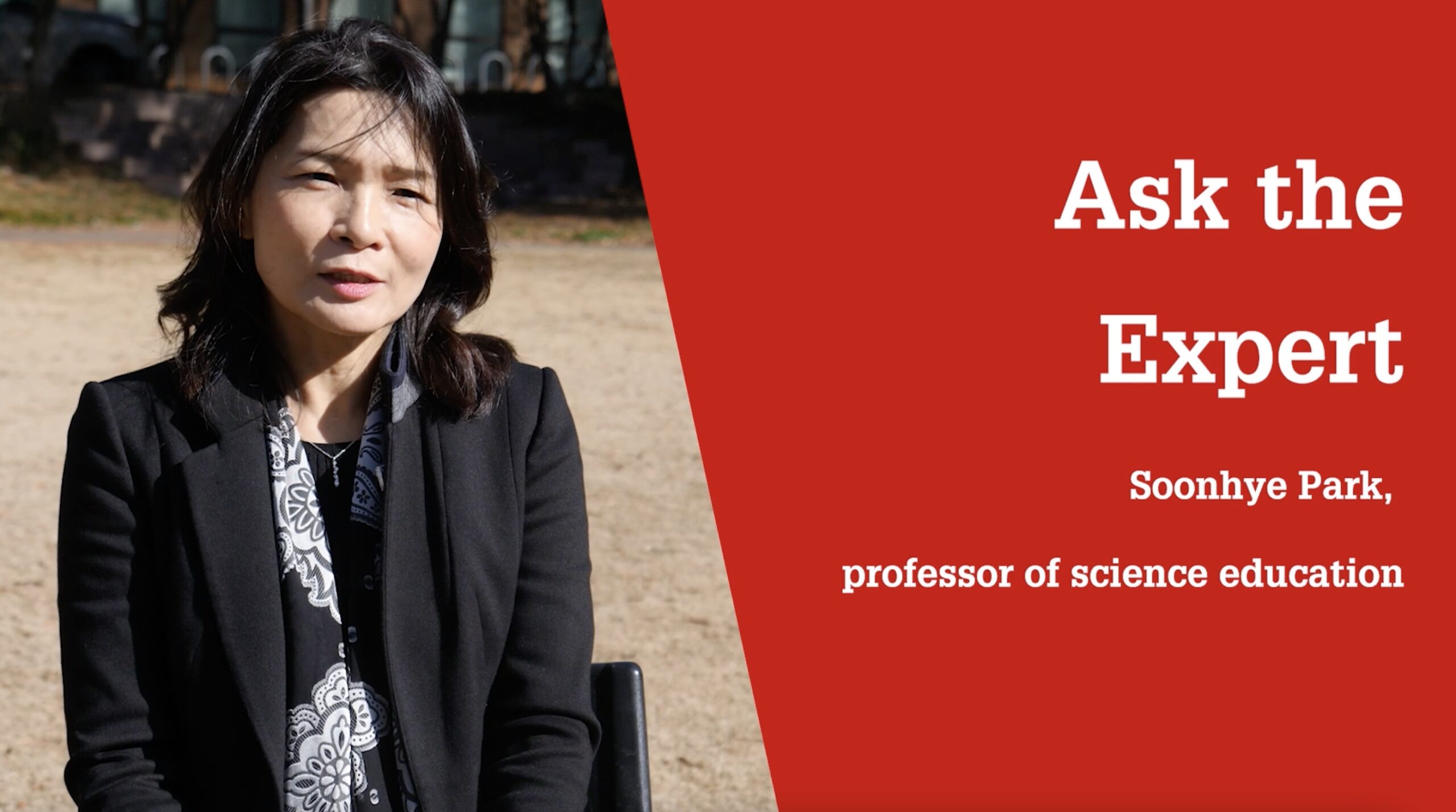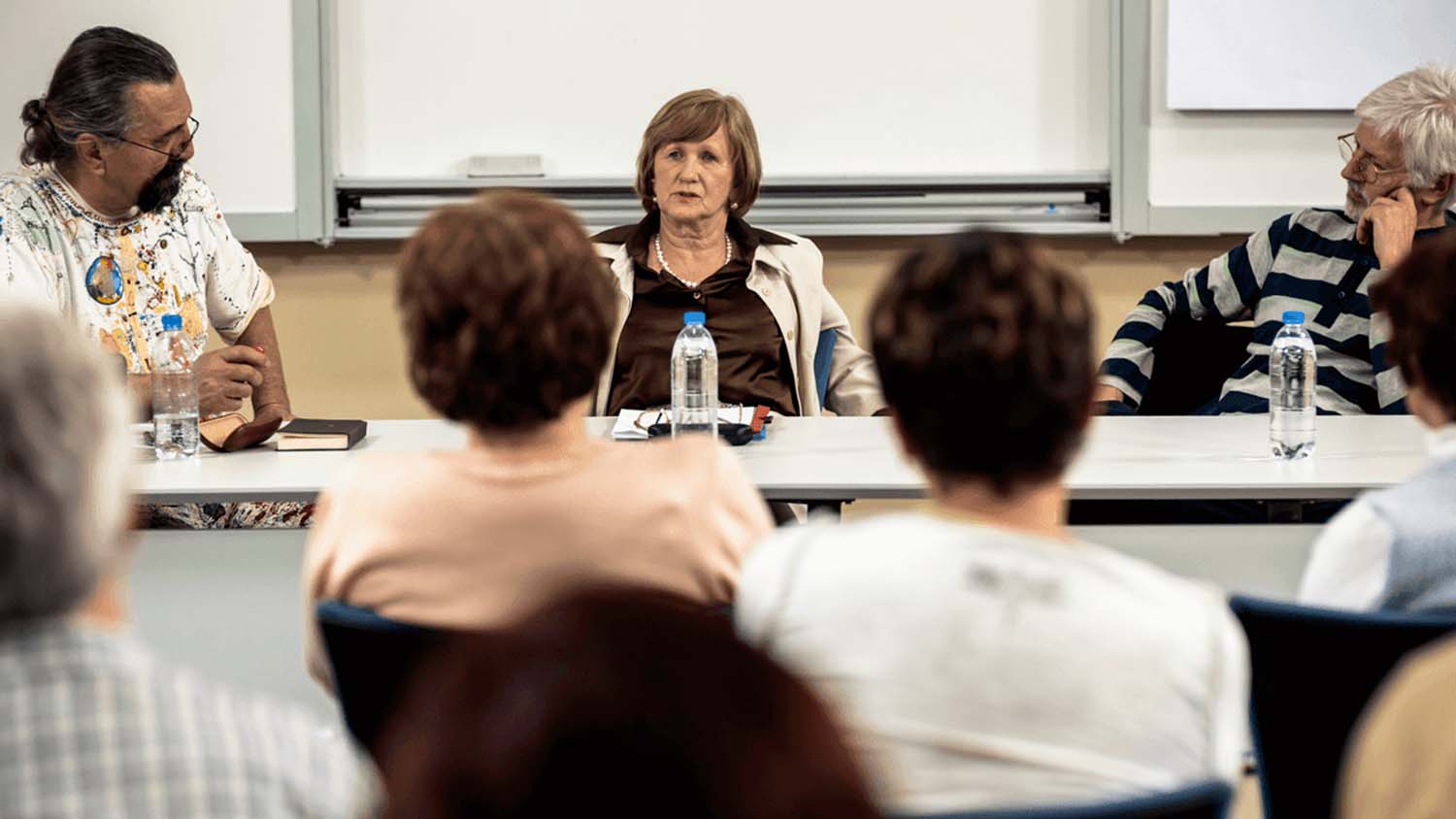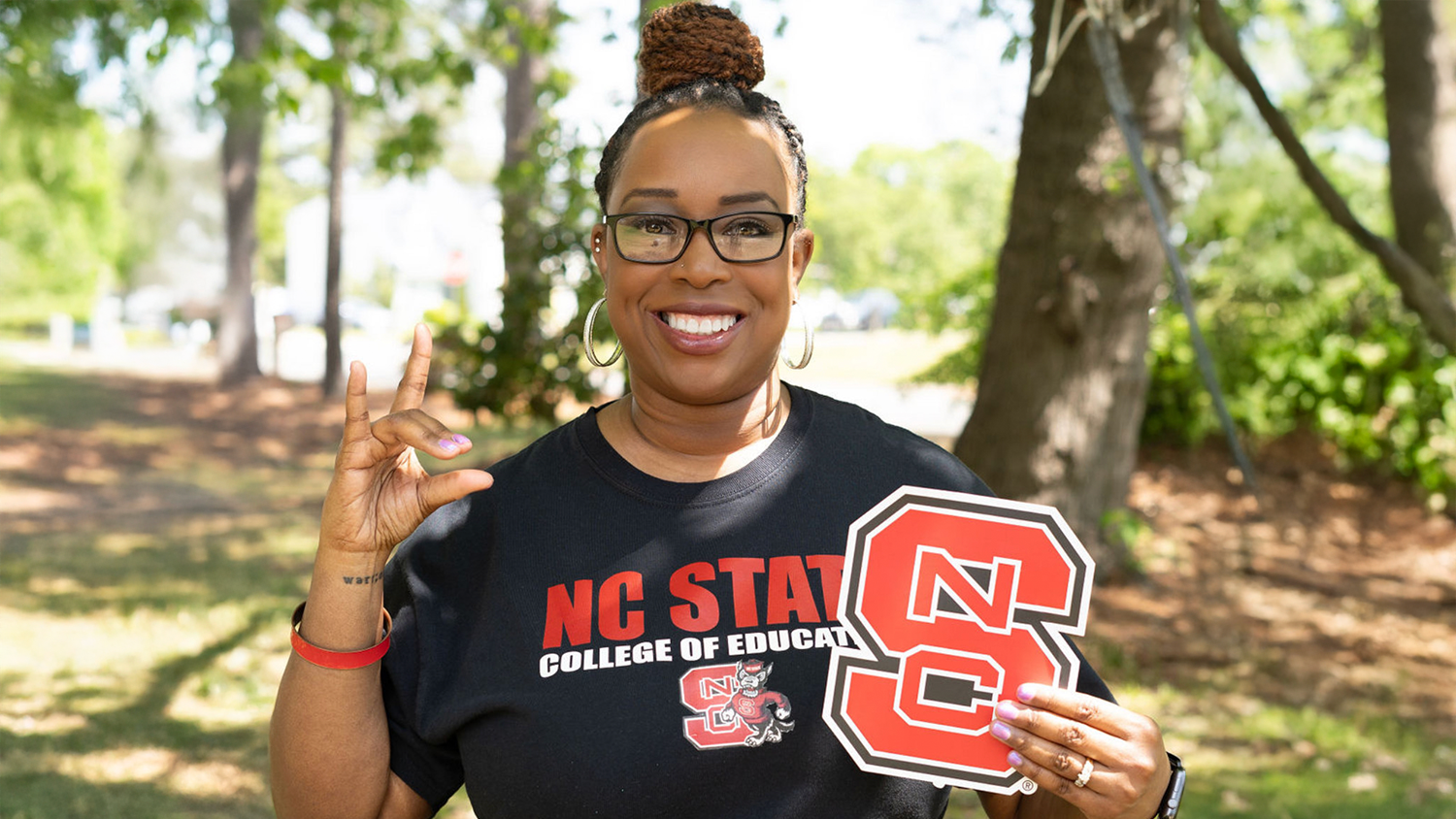How Can Developing Strong Pedagogical Content Knowledge (PCK) Help Teachers Better Engage Their Students in Science Learning? ‘PCK Enables Teachers to Translate Their Content Knowledge into Forms That are More Accessible and Comprehensible to Students,’ Says Professor Soonhye Park
There are strong connections between students’ engagement and academic achievement in science and their ultimate career intentions in STEM fields. For this reason, Soonhye Park, a professor of science education in the NC State College of Education, says engaging K-12 students in science activities is critical to both preparing scientifically literate students and producing a future STEM workforce.
“Students learn science best by doing science and, when students find a learning opportunity interesting and relevant to them, their motivation and engagement usually increase,” she said.
To effectively engage students in the science classroom, Park recommends project-based learning to provide students with activities that directly relate to their everyday lives or communities.
For example, a teacher in a community that relies on agriculture could ask students to solve problems related to water pollution caused by fertilizers. In small groups, the teacher could ask the students to collaboratively discuss the problems, develop and carry out investigations of potential solutions and communicate their findings with other students, Park suggested.
“Just making lessons more relevant for students, giving autonomy to students and having choices for students is the best way to engage students,” she said.
Developing Pedagogical Content Knowledge Can Help Educators Succeed
Research about the ways in which students learn, Park said, indicates students consistently construct their own understanding based on prior knowledge and experiences as well as through interactions with their peers and teachers.
Because of this, teachers must understand how to elicit students’ prior knowledge and then support them as they develop more informed scientific conceptual understandings based on that prior knowledge.
One way educators can successfully achieve this, Park said, is by developing and enhancing their own pedagogical content knowledge (PCK).
“PCK is the blending of content and pedagogy into an understanding of how pedagogical topics, issues or problems should be organized, represented and adapted to the needs of diverse students in a particular context,” Park said. “In other words, PCK enables teachers to translate their content knowledge into forms that are more accessible and comprehensible to students.”
To develop and execute PCK in their science teaching, Park said educators need to synthesize and integrate multiple domains of knowledge, including those related to assessment, curriculum, their students, instructional strategies, their teaching goals and the nature of science.
Her research has shown effective professional development programs can be successful in supporting the development of teachers’ pedagogical content knowledge, ultimately leading to better engagement among their students.
Professional development that places a focus not only on subject matter content but the way in which students learn that content, Park said, is particularly effective at improving teachers’ PCK. Additionally, it is important that any professional development aimed at improving PCK be a long-term program with sustained support.
“Additionally, promoting participation of teachers from the same school, same district, same subject and same grade would be the best way to promote peer interactions, peer reflections and peer mentoring, and increase meaningful social interactions that contribute to teachers learning how to teach,” she said.
Park’s own research included the design and implementation of professional development for high school biology teachers from rural, underserved schools. Biology teachers in those schools were typically the only science teachers in their building and were often asked to teach all science courses, even if those courses were outside of their specialized discipline.
Most of the professional development programs Park designed to help secondary science teachers improve their pedagogical content knowledge usually incorporated strategies including video analysis of lessons from themselves and peers and mentoring sessions where educators shared ideas, identified problems of practice, developed solutions and reflected on outcomes.
“The program was very successful, and my research findings show that their PCK developed, and their pedagogical reasoning skills actually improved a lot,” Park said.
Creating Engaging Lessons Often Involves Overcoming Obstacles
Despite the positive outcomes of professional development programs, teachers often still face a variety of barriers when it comes to both improving their PCK and implementing student-centered, inquiry-based learning in their classrooms.
One of the biggest challenges for teachers who want to introduce inquiry-based learning is that many didn’t have experiences with this pedagogical approach as students.
“Teachers tend to teach in the same way that they were taught. So, it’s hard to understand what this kind of teaching approach looks like in real classrooms for them,” Park said.
Additionally, changing practices takes significant time and effort. Many teachers, Park said, are often stretched for time and are not always able to make the commitment to translate the inventive teaching approaches they’ve learned into their classrooms.
The College of Education works to make sure that future science educators are prepared with adequate PCK and the ability to enact such knowledge through methods courses as well as a wealth of teaching experiences, Park said.
Even before her students enter a real classroom to student teach, Park engages them in microteaching assignments, where students create a lesson plan and teach small, sample lessons to their peers in order to get feedback.
“Teachers have to read their students first and make adjustments in the moment. That’s the heart of PCK,” Park said. “Providing those opportunities to develop foundational knowledge bases that constitute PCK and providing as many opportunities as possible to enact PCK is important because the integration of all the domains of knowledge are integrated during moments of teaching.”
- Categories:



